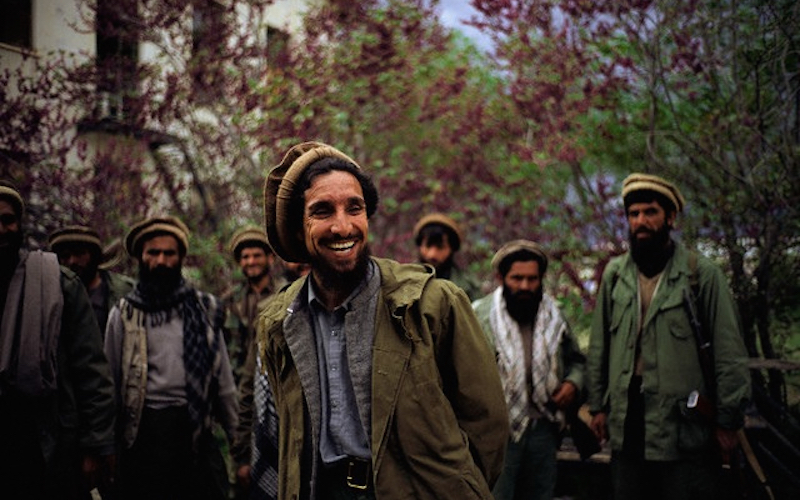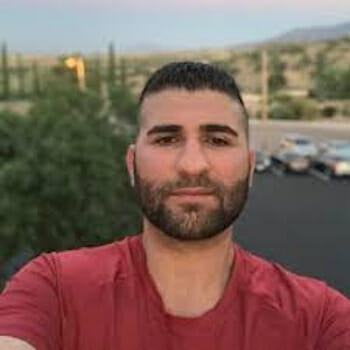
Remembering Ahmad Shah Massoud
Fourteen years ago — on September 9, 2001 — Ahmad Shah Massoud, the Northern Alliance leader and the only leader who stood against the tyranny of the Taliban, was assassinated by two North African Arab reporters. These two reporters had been dispatched by Osama bin Laden to remove the last obstacle which stood in the way of the Taliban’s complete takeover of Afghanistan. Osama had remarked: “As long as this man is alive, no victory is possible.”
When Osama could no longer stay in Saudi Arabia or in North African countries, the Taliban invited him to make the move to Afghanistan as a special guest. As a reciprocal act, and to compensate the Taliban for their hospitality, Osama assassinated Massoud. Massoud is gone, but his dreams for a better tomorrow for all the peoples of Afghanistan live on.
Few leaders are able to capture the popular and historical imagination of their country. Few leaders have been able to shape the destiny of their country the way Massoud shaped the history and destiny of Afghanistan. The Americans have Washington to be proud of. Without Washington, America’s war of independence against the British may not have been as successful as it was. The Germans have Bismarck to be proud of. It could have taken several more decades before the Germans could claim national unity without Bismarck. The Afghans have Massoud to be proud of. Without Massoud, victory against the Soviet Union would have been much harder. And without Massoud, the Taliban’s tyranny would have reigned supreme throughout Afghanistan.
There is no other leader who the Afghans — regardless of their ethnic, religious, and linguistic background — respect more than Ahmad Shah Massoud. Over the course of the last few weeks, I have met with a number of prominent Afghan political leaders. The fourteenth anniversary of Massoud’s death is in a couple of days. One of my questions to the people I have interviewed has been: is there a leader you admire the most in Afghanistan.
Not surprisingly, they, these famous political leaders, all name Ahmad Shah Massoud. Ismail Khan — the former governor of Herat and the former minister of Water and Energy — and one of the most distinguished leaders who fought against the Soviet Union and the Taliban — told me that the reason Massoud is respected so genuinely throughout Afghanistan is because he was a true patriot. “Massoud was a sincere leader. You could tell you were in the company of a great man when you met him. He made everyone — regardless of their stature and station in life — feel great,” he added.
In a similar vein, Shahir Rafiq, who served as a senator in the parliament of Afghanistan and is now the head of a civil society organization in Herat, had some powerful things to say about Ahmad Shah Massoud. When I asked Mr. Shahir about what he thought of Massoud, I was not prepared for him to say nice things about Massoud, as he is a former member of the Communist Party of Afghanistan. Massoud and Shahir were diametrically opposed to each other ideologically. Yet Shahir remembers him as a true son of Afghanistan — a man who was full of integrity and magnanimity. He related an anecdote to me about Massoud to illustrate his greatness. Rashid Dostum, Afghanistan’s current Vice President, was on the side of the Afghan government back in the 1980s when the Soviets were still in Afghanistan. That made Mr. Dostum the enemy of Massoud.
Given that Massoud had become this giant of a fighter and too much of a nuisance for the government, the government had tasked Mr. Dostum to capture or kill Massoud. So one day, Mr. Shahir told me, Mr. Dostum and his men lay siege to Massoud’s position and thought they had him when Massoud and his men turned things quickly around and captured three hundred of Mr. Dostum’s men. Once in Massoud’s custody, Mr. Dostum’s men thought they were going to be killed in the most brutal way possible. To their surprise, however, Massoud commanded that all of Mr. Dostum’s men be given their weapons back, provided with very good food, and released. On hearing this news, Mr. Dostum was completely blown away, remarking: this man is too cool to be an enemy. It was not long before Mr. Dostum defected to Massoud. “I admire Massoud because he was not a killer and because he was a very compassionate leader,” Mr. Shahir added.
It was these qualities that made Massoud a special leader, a leader who was not only a great military strategist, but also a great human being, endowed with valleys of compassion. By the time Massoud was in his mid-twenties, the Soviets had invaded Afghanistan. The Soviets were imposing all sorts of restraints on the people of Afghanistan. Massoud decided to put an end to the Soviets’ occupation in Afghanistan. He went to the Panjshir Valley (his birthplace) and organized a very small group of people to fight against the Soviet Union.
It was not long before Massoud was an international phenomenon. The Communist regime in Kabul and their Soviet allies made many attempts to capture or kill Massoud but all their attempts failed abysmally. Nine times the Russians invaded Panjshir with over 10,000 men, heavy weapons, field artillery, tanks, and air support, but they failed to defeat Massoud. In every battle, Massoud proved to be invincible. In every battle, Massoud dealt a major blow to the Russians and as a result the Russians eventually abandoned Afghanistan in 1989.
From 1989 to 1993, Afghanistan went through a brutal civil war. Many political factions, that had been organized to bring down the Soviets, splintered into several political groups and vied for control and power in Kabul. But Massoud became victorious against all of them because he had the support of the majority of people in Afghanistan. From 1993 until the Taliban took over Kabul in 1996, Massoud served as the defense minister of Afghanistan. Massoud could have put up a fight against the Taliban and retained control over Kabul, but he intentionally abandoned the city to circumvent bloodshed and civilian casualties. Therefore, he went to his old sangar (stronghold) in Panjshir to fight against the extremism of the Taliban and their cowardly political supporters.
Massoud’s fight against the Taliban was brutal. Even though he lacked resources, he refused to cave in to the foreign countries’ demands and become their lackey. He was born an independent thinker, a brave fighter. He loved liberty, and had made a commitment to his country to never stop fighting until his dream of a free Afghanistan was realized.
Moreover, Massoud was a brilliant military commander. He was a true genius of asymmetric warfare. But war was not what defined Massoud. He was an engineering student at the University of Kabul when the Soviets invaded Afghanistan. He always said that once peace was restored, he would go back to complete his studies and work as a civilian engineer. It’s fair to say that no one loved peace more than Massoud, as no one knew the brutalities of the war more than he.
Massoud was a bibliophile. He took great joy in reading the great Persian poets — Hafiz, Sadi, and Khayaam, on a daily basis. Thucydides wrote: “The State that separates its scholars from its warriors will have its thinking done by cowards and its fighting by fools.” Massoud was aware of the wisdom contained in Thucydides’ words. In many film recordings of him, he is seen persuading his commanders to read books and poetry. Samee Hamed, a famous Afghan poet and a confidant of Massoud, recently wrote, “Massoud was full of energy. He radiated optimism and confidence; he never became tired of debating. He talked about literature as much as he talked about war.” His other quality was that he was tolerant and embraced Afghans of all walks of life. He stood for tolerance, inclusiveness, women’s rights, and human rights. He famously quipped: “We consider this our duty — to defend humanity against the scourge of intolerance, violence, and fanaticism.” He despised fanaticism in all its forms and manifestations.
Amrullah Saleh — one of Massoud’s closest lieutenants and former Intelligence Chief of Afghanistan — told me that Massoud was an exemplary leader and stood for order, justice, and equality. That is what distinguished him as a great leader, he added. To borrow from Charles Dickens, Massoud had a heart that never hardened, and a temper that never tired, and a touch that never hurt. In a time when Afghanistan is suffering from a crisis of leadership, Massoud is greatly missed.

